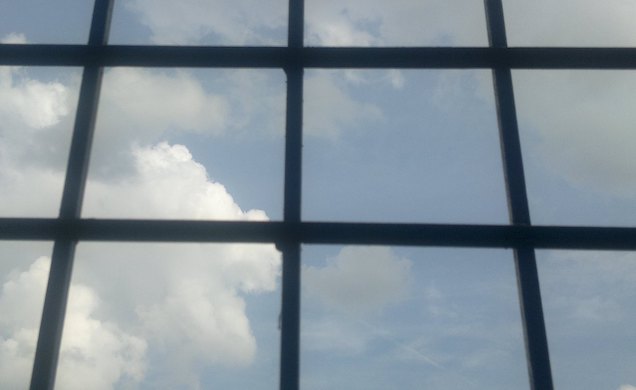HEALTH WARNING
We are no longer updating our Covid-19 hub regularly. That includes this page. Click here for the latest.
'Now I've got "FOGO": fear of going out'

I was on the verge of being discharged from two years of cancer treatment including a stem cell transplant when the Covid-19 crisis kicked in.
Following the advice of my consultant, I was encouraged to stick with the precautionary approach that I had already been applying, hunker down and self-isolate, in much in the same way as I had needed to when my immune system was at its very lowest point a couple of years ago.
A familiar place
So, it was a familiar place to find myself in, and having had prior experience to draw on, I accepted that this was the way to go rather than risk squandering all the great work the NHS had invested in me. Relinquishing freedom and control were part of accepting that my vulnerability was difficult to accurately assess given the limited robust information that was available to draw on - despite the disorienting efforts of the ministerial briefings and government guidance.
The downside of being shielded is that I can only connect with people electronically or perhaps through a closed window. I miss seeing my kids and being able to be active in my local community.
On the upside, I have benefited from the practical support of my local community and that has heartened me greatly. As a way to keep sane, I have been able to develop healthy fitness routines and explore cultural topics linking up with friends online to discuss films and theatre.
I have engaged enthusiastically with the cancer charity Penny Brohn UK. When I was going through treatment, they provided informed support to get over the side-effects and build ongoing resilience. As part of my recovery and rehabilitation, I have joined the weekly resilience and nutrition groups online. I have also recommended these to friends who find themselves feeling at a loss and cut adrift as they proceed through their treatment.
I hope a vaccine comes along
Looking into the future I may need to isolate from Covid-19 until such time as my consultant thinks it is safe to emerge. I hope that a vaccine comes rolling along soon.
The experience of cancer throws up some common and some unexpected issues. Penny Brohn UK introduced me to the concept of pre-habilitation. Pre-habilitation prepares you with integrated strategies and techniques for coping and managing treatment in advance such as diet, exercise, psychological techniques and peer support. I realise I was instinctively applying these techniques throughout my treatment and my recovery, and will as I shield into the coming months and years.
My concern is that my lovely partner and I end up at our wits end with one another, and my fear is that we get left behind when others can move on from Zoom, and can enjoy that long-awaited gathering or party.
I am trying to plan ahead so that friends are aware that the Fear of Going Out is based on doctors’ orders, and that Fear of Missing Out needs to be taken seriously, if we are going to come through this in a sane and healthy way.
| This article reflects the experience and the views of the individual. It is not health information from the Men's Health Forum under the terms of the NHS England Information Standard. |
|
The Men’s Health Forum need your support It’s tough for men to ask for help but if you don’t ask when you need it, things generally only get worse. So we’re asking. In the UK, one man in five dies before the age of 65. If we had health policies and services that better reflected the needs of the whole population, it might not be like that. But it is. Policies and services and indeed men have been like this for a long time and they don’t change overnight just because we want them to. It’s true that the UK’s men don’t have it bad compared to some other groups. We’re not asking you to ‘feel sorry’ for men or put them first. We’re talking here about something more complicated, something that falls outside the traditional charity fund-raising model of ‘doing something for those less fortunate than ourselves’. That model raises money but it seldom changes much. We’re talking about changing the way we look at the world. There is nothing inevitable about premature male death. Services accessible to all, a population better informed. These would benefit everyone - rich and poor, young and old, male and female - and that’s what we’re campaigning for. We’re not asking you to look at images of pity, we’re just asking you to look around at the society you live in, at the men you know and at the families with sons, fathers and grandads missing. Here’s our fund-raising page - please chip in if you can. |


